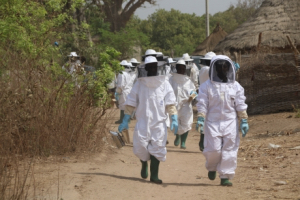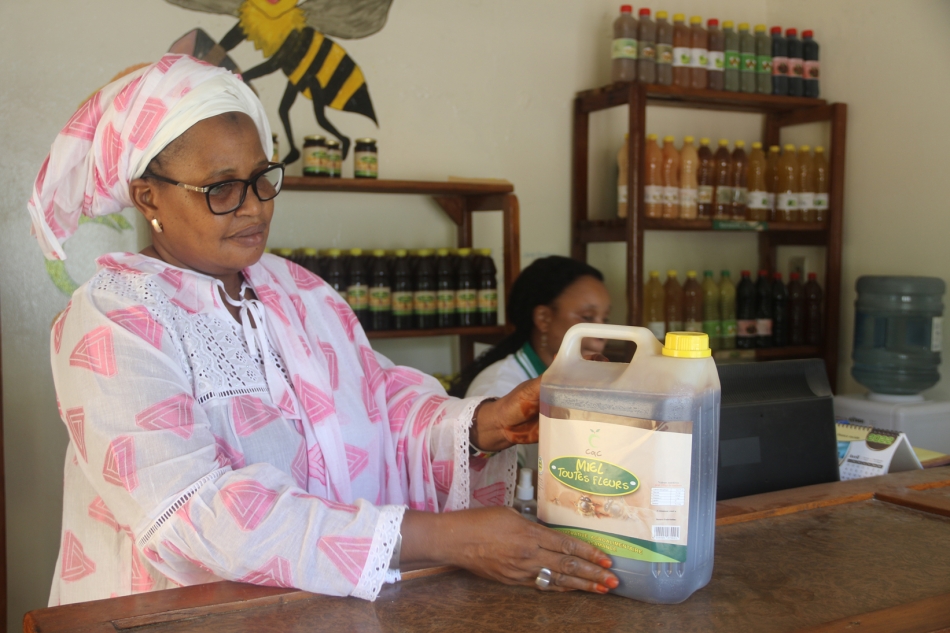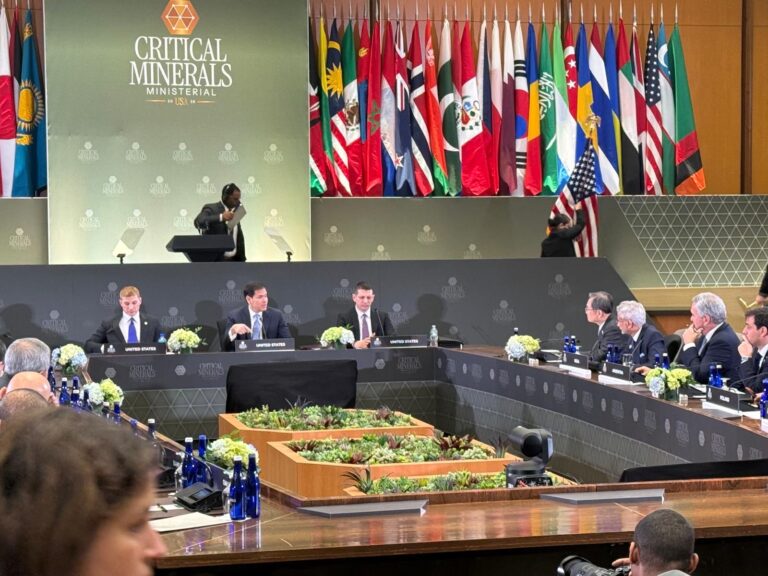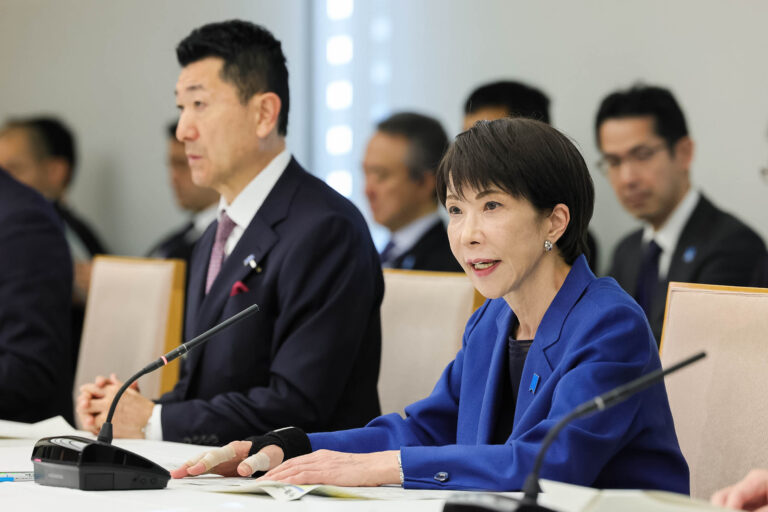
Bees play a pivotal role in agriculture and are vital for the preservation of ecological balance and biodiversity in nature. Raising honeybees ensures better pollination of flowering plants. This means more food for ourselves and wildlife.
However, in recent years, bees and the beekeeping sector have been hit hard by the impacts of climate change, which are seriously threatening these hardworking creatures who play a big part in the world’s crop production. Globally, three out of four crops producing fruits or seeds for human use as food depend, at least in part, on pollinators.
In the village of Sare Bidji in the Kolda region of southern Senegal, 52-year-old Mamadiang Mballo describes how climate change does not spare bees or the couple’s beekeeping activities: “At one point, all the bees left the hive because it got too hot, and they had no food or water nearby.”
As a member of the local cooperative, Coopérative Agroalimentaire de la Casamance – Miel (CAC/Miel), Mamadiang Mballo, has practised beekeeping for over 15 years. Beekeeping fascinated Mamadiang from a young age, but he started this livelihood with one clear objective in mind: to ensure his children got an education.
Beekeeping in Senegal has traditionally been considered a man’s job. Over the years, Mamadiang set off alone in the mornings to collect honey and return to sell it at the local market. But this changed after he and his wife Fatoumata Kandé attended a farmer field school together, organized as part of the FAO Strengthening Agricultural Adaptation (SAGA) project funded by the Government of Québec.

Through the gender-sensitive, farmer field schools part of the initiative, Fatoumata got inspired to engage in beekeeping and received the tools to do so. “The turning point came when my husband and I participated in the FAO training together. That’s where my motivation to become a beekeeper came from,” says Fatoumata, a farmer and mother. “The training helped me understand that I too can contribute and make a difference,” she adds.
The farmer field school training is part of the CasaMiel initiative, which is led by implementing partner Société de coopération pour le développement international (SOCODEVI) in partnership with the CAC/Miel cooperative and local communities. The initiative is meant to increase the production of honey in Senegal while strengthening beekeepers’ resilience in the face of climate change and reducing gender inequality in the sector.
“Through the training, we received modern equipment including hives that do not retain heat and information on how to choose the type of hives and where to place them,” says Mamadiang. “We also got access to lighter portable hives that are easier to carry and move. All of this allowed us to adapt and even increase our beekeeping production,” he adds.
Between 2019 and 2020, FAO collaborated with six groups of the CAC/Miel cooperative which each manage a processing unit and a honey packaging plant in the area. Through the Casa Miel initiative, 49 couples received technical support and attended training workshops in the local language, Peulh.
The gender equality components of the farmer field schools promoted discussion between the couples on themes such as self-esteem, leadership and communication. They were able to draw parallels between the inequalities discussed and their personal situations and thus initiate concrete changes within the household.
The training also spread the understanding of the fundamental role that women play in agriculture and adaptation to climate change. When women have the same access as men to productive resources and services, they can significantly increase the yields on their farms and adapt to a changing climate. Tapping into the knowledge and capacity of women and having women at the table represent significant opportunities to develop new, effective climate change solutions for the benefit of all.
With these trainings, the CAC/Miel cooperative’s sale of honey increased from 2 816 litres in 2019 to 8 840 litres in 2021.

“The training has shown us how we can support each other as a couple. Before I had to do everything in the household, now I share these tasks with my husband. We work as a team,” says Fatoumata. She feels proud of their newfound balance. “I feel valued in my relationship and that makes me happy,” she says.
“It’s like we are operating on a different level now,” explains Mamadiang. “All decisions are made as a family.”
Mamadiang and Fatoumata demonstrate that by challenging the views about gender and transforming power relations, they are now better equipped to fight climate change as a team. Fatoumata has started sharing the knowledge she gained through the training with other women in the community and beyond in Senegal. She is already seeing results, “It’s encouraging to see more and more women involved in beekeeping. My group at the cooperative is composed mainly of women and the president is a woman too.”
As a couple, Mamadiang and Fatoumata complement one another: “I bring the ability to adapt,” Mamadiang says. “I bring the quality of resilience,” Fatoumata adds.
Adaptation and resilience, what better combination to tackle the challenges of today for a better tomorrow? Nowadays Mamadiang together with his wife Fatoumata, are working as a beekeeping couple and reaping the rewards of gender equality.
Source: FAO News and Media office, Rome





